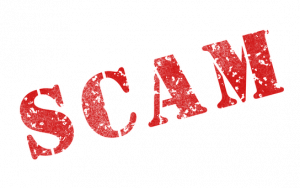
The Federal Trade Commission says fraudsters use weather disasters, such as the recent hurricanes, to lure unsuspecting Hoosiers to shell out dollars to a fake charity.
Con artists are also using technology to trick voters into donating to a bogus political cause or to spread false information.
Matt Schiltz, staff attorney with the Federal Trade Commission Midwest Office, said imposter scams are the most frequently reported type of fraud.
“Unfortunately, I’ve seen reports that people are using artificial intelligence to clone voices,” said Schiltz, “or at least trying to so the person calling may sound like a friend or a family member or a famous person, a politician.”
He said if you’ve received suspicious phone calls or emails requesting money or private information, slow down and talk with a trusted family member or friend before doing anything.
Investigate the information before taking any further action. Schiltz says scammers often want their victims to act first and think later.
The FBI report ranks Indiana 25th on their list of 57 most scammed states and U.S. territories.
Schiltz said fraudsters create new, more persuasive scams by improvising on old ones.
A scammer posing as a bank employee contacts a potential victim and informs them that they need to move their money into another account for protection against tampering or government seizure.
The employee offers to transfer the funds to a second employee – actually, the con artist’s accomplice – who transfers your money into their account.
Schiltz said the agency is working on several different fronts to combat imposters.
“The FTC has a new impersonation rule that gives the agency stronger tools to combat the scams,” said Schiltz. “And we actually brought our first case under the impersonation rule earlier this year.”
Consumers should visit ftc.gov/imposters, to learn more about the different types of scams. Schiltz encouraged anyone with knowledge of a scam to contact the agency at reportfraud.ftc.gov.
(Story by our newsgathering partners at Indiana News Service)



